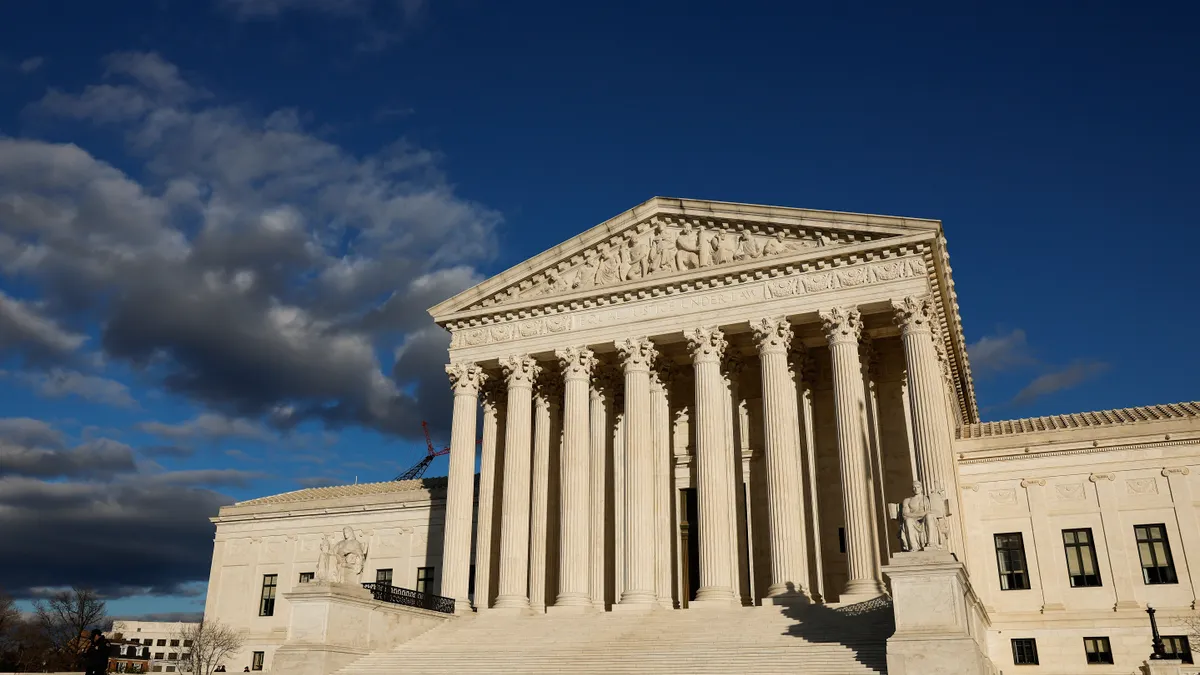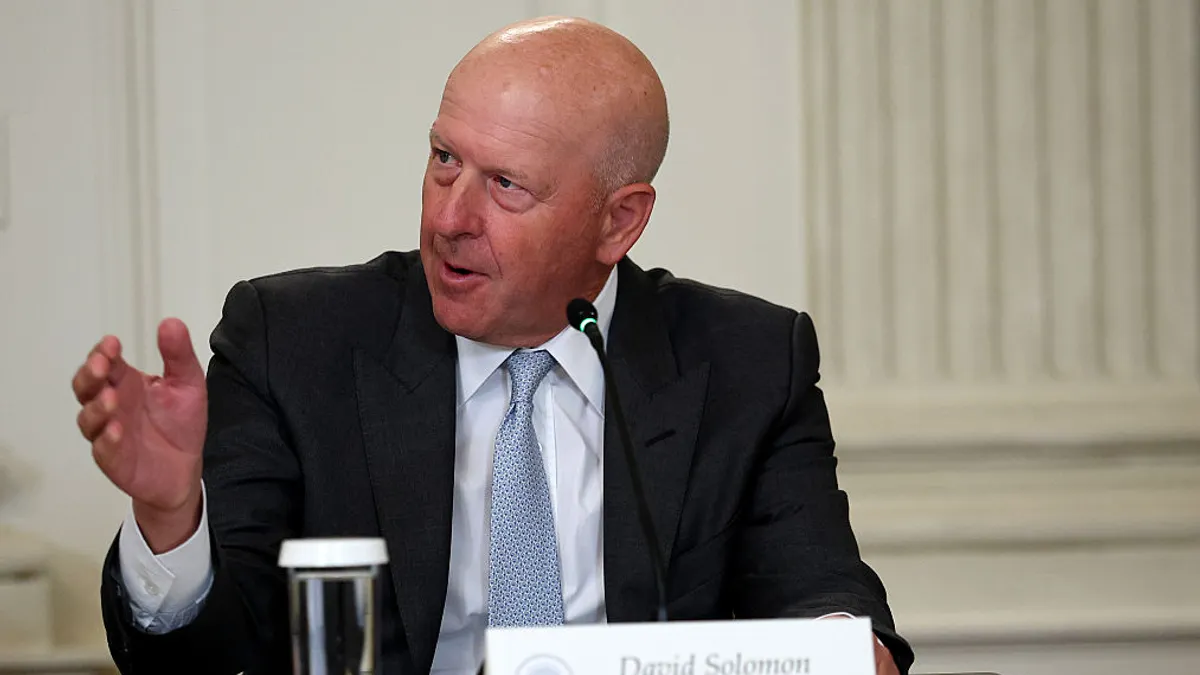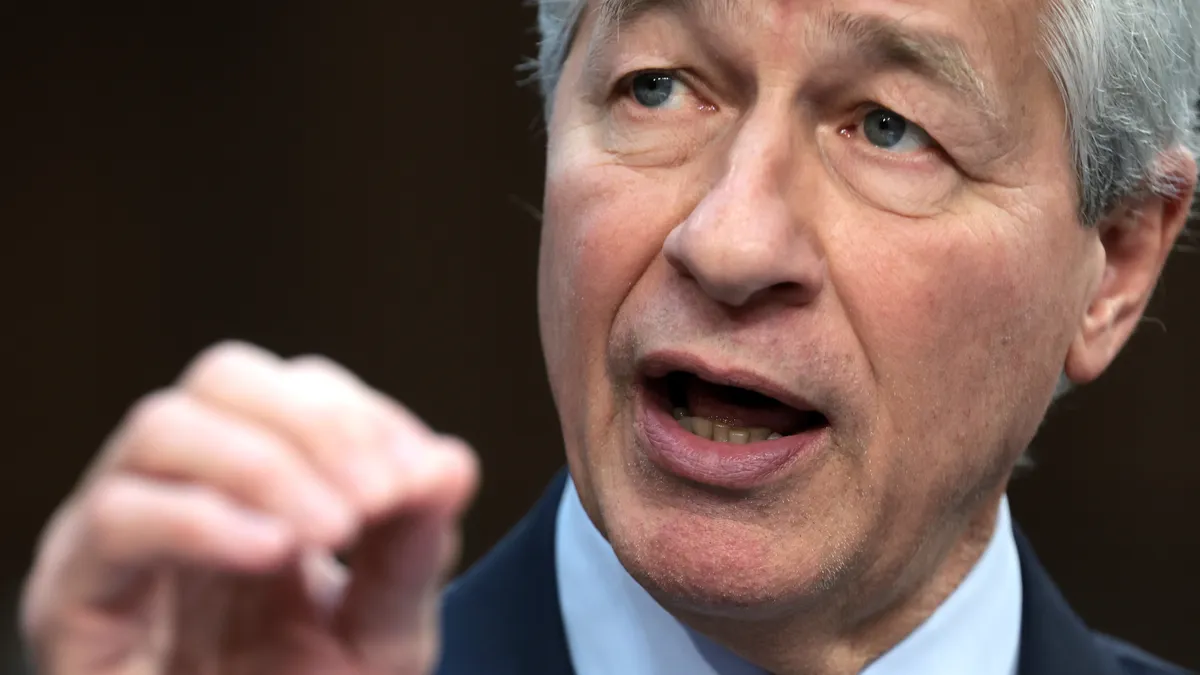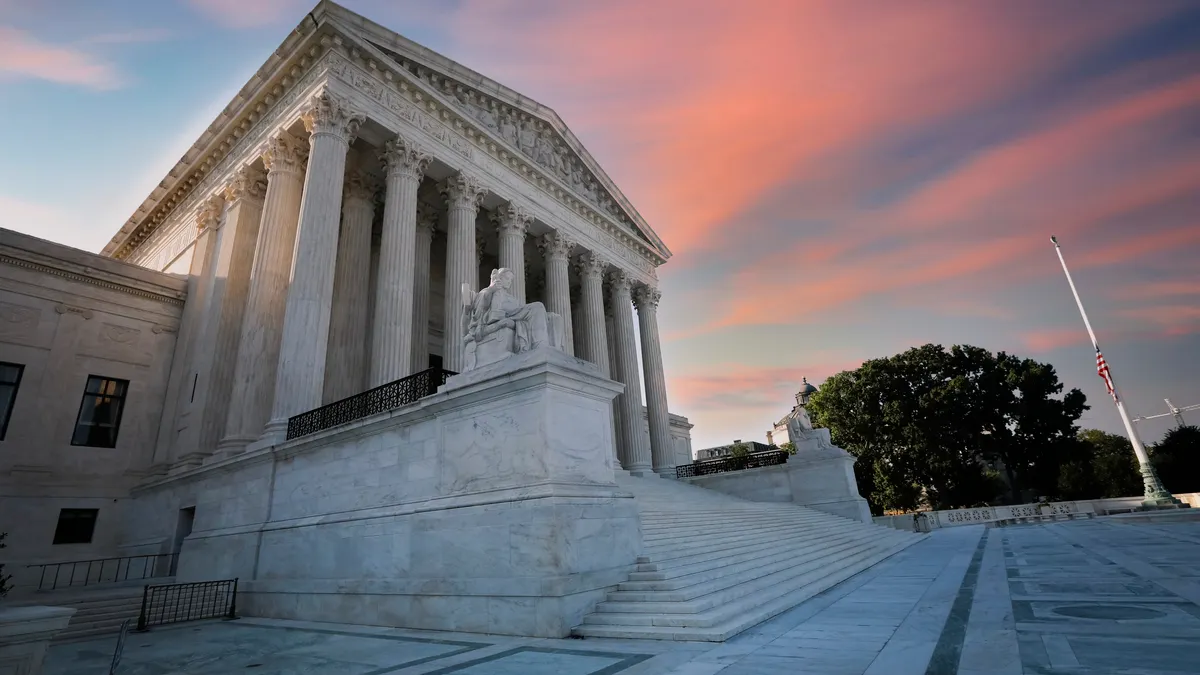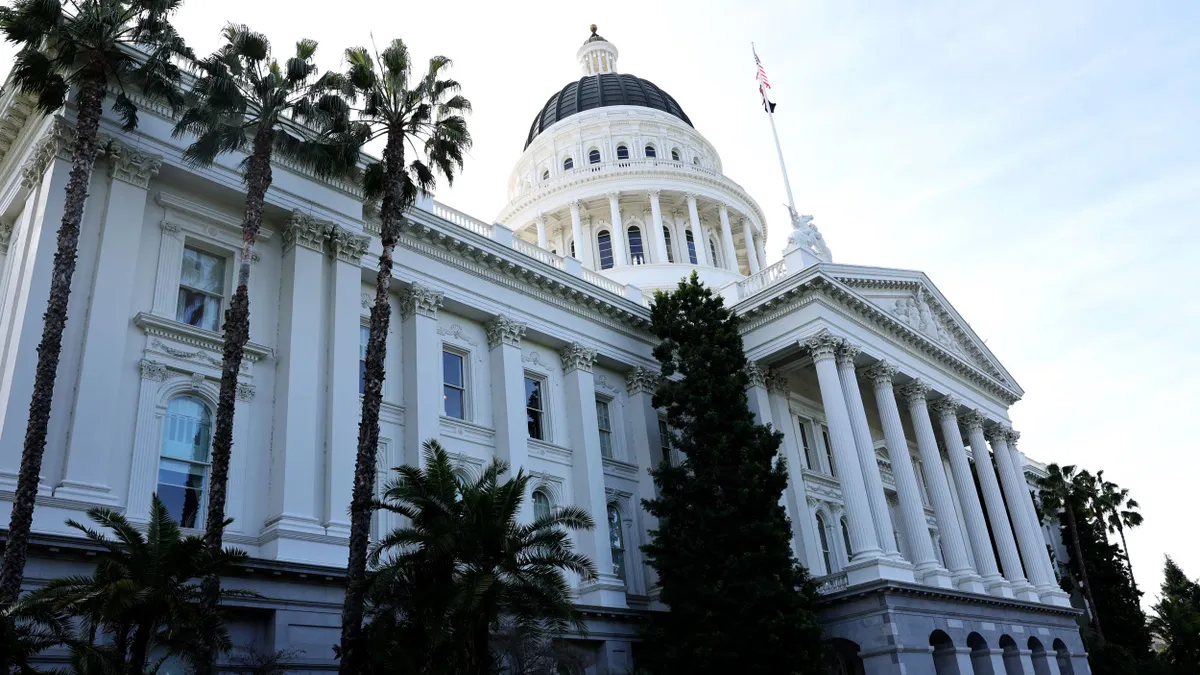Bank trade groups see a Friday U.S. Supreme Court decision as a potential win for their members who have been subject to increased regulation in recent years.
The nation’s highest court overturned the decades-old Chevron doctrine, which since 1984 has had courts deferring to regulatory interpretation of statutes when such statutes were ambiguous, including those made by banking regulators.
The Chevron doctrine was struck down in a majority decision on two similar cases, Loper Bright Enterprises v. Raimondo and Relentless, Inc. v. U.S. Department of Commerce.
The Chevron doctrine “defies the command of the Administrative Procedure Act that ‘the reviewing court’ – not the agency whose action it reviews – is to ‘decide all relevant questions or law’ and ‘interpret… statutory provisions.’ It requires a court to ignore, not follow, ‘the reading the court would have reached’ had it exercised its independent judgment as required by the APA,” the justices wrote Friday.
Moving forward, regulatory actions that lack a clear authority from Congress are likely to face more legal challenges.
“Today’s historic decision will take years to unfold across not just the financial regulatory landscape, but every area where executive agencies impact regulated entities and American consumers,” Consumer Bankers Association President and CEO Lindsey Johnson said in a prepared statement Friday.
“What is clear, though, is that we would not be at this point today if government agencies were more prudent and consistent about staying within their statutory authorities, grounding their rulemakings in empirical facts, and heeding appropriate procedural safeguards,” Johnson said. “Instead, too frequently, our regulators appear to be chasing headlines and short-term political wins.”
American Bankers Association President Rob Nichols said the court’s message Friday was that federal agencies’ powers “are not unlimited,” and also leaned into the idea that the agencies must pare down regulation which “in many cases clearly exceed[s] their statutory authority while making it harder for banks to serve their customers.”
Dorsey & Whitney partner Joseph Lynyak said in an emailed statement that the overturning of the Chevron doctrine “levels the playing field to more fairly allow interested industry stakeholders to challenge agency interpretations. This balancing will be most pronounced when an agency has expertise yet industry members hold equivalent expertise that should be evaluated by a court.”
With the decision, the Supreme Court has deemed that courts are the “proper forum for deciding matters of law—including statutory and regulatory ambiguities,” Lynyak said. “However, courts around the country may be inundated with private parties who may now litigate and relitigate an agency interpretation, including creating conflicting decisions by lower courts.”
The Consumer Financial Protection Bureau, he said, may be subject to increased challenges to its regulations, specifically because it’s headed by a single, non-lawyer director.
Mike G. Silver, a consumer finance attorney for Husch Blackwell in Washington, D.C. who spent 12 years at the CFPB, said he thinks the decision could impact the CFPB less than it will affect other agencies, because the CFPB has a shorter history and smaller body of regulation than other federal regulators.
“The CFPB is so young as an agency, it's only 12 and a half years old, so it doesn't have a large body of interpretive guidance for courts to follow,” Silver told Banking Dive.
Implications are “pretty unclear in the short term,” Silver said, noting that the decision didn’t come as a surprise.
“The court has been signaling its distaste for the Chevron decision for many years now. As Justice Chief Justice Roberts wrote in the opinion, the court has not relied on Chevron in almost a decade in any of its opinions. The issue is more for lower courts that have continued to rely on Chevron,” he said.
The decision is not retroactive and doesn’t call into question previous cases that have relied on the Chevron framework. In terms of agency decisions, Silver said he doesn’t think the non-retroactivity is “airtight,” and that any agency’s previously made rules can be challenged in new cases.
“It's basically the difference between if you have an old case that found for the agency, [and] they gave him deference, the court is saying you can't simply assume that that's invalid,” Silver said. “But at the same time, if there's not an old case, or maybe there's cases that are mixed, then it does seem like there's an opening to, at least in some cases, try to get a court to find a long standing-regulation to be in excess of statutory authority.


